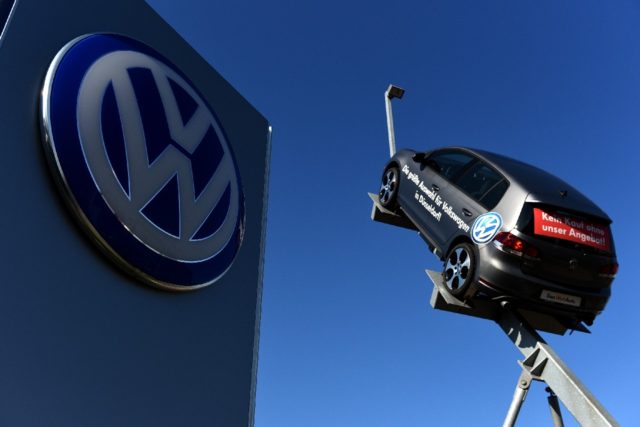French automakers Renault, Citroen and Peugeot are the latest companies to be ensnared in the “dieselgate” scandal — a massive emissions cheating scheme that started at German car giant Volkswagen.
Here is a timeline:
‘Defeat devices’
In 2014, US researchers at the University of West Virginia discover that certain VW diesel cars emit up to 40 times the permissible levels of harmful nitrogen oxide when tested on the road.
In September the next year, the US Environmental Protection Agency accuses VW of duping diesel emissions tests using so-called “defeat devices”.
Days later Volkswagen admits installing software designed to reduce emissions during lab tests in 11 million diesel engines worldwide. VW shares plunge by 40 percent in two days.
On September 23, 2015, chief executive Martin Winterkorn steps down but insists he knew nothing of the scam.
Financial and legal pain
In 2016, VW announces its first annual loss in 20 years.
Months later the company agrees to pay $14.7 billion in buybacks, compensation and penalties in a mammoth settlement with US authorities. The deal includes cash payouts for nearly 500,000 US drivers.
The following year VW pleads guilty to three US charges including fraud.
As part of the plea deal, VW signs up to a “statement of facts” in which it admits that the cheating dates back to 2006, but it remains unclear how much the top brass knew about the scam.
Car parts maker Bosch, which supplied elements of the software, agrees to pay nearly $330 million to US car owners and dealers but admits no wrongdoing.
A Michigan court sentences VW engineer James Liang to 40 months in prison in August 2017.
In December, VW executive Oliver Schmidt, who was arrested while on holiday in Florida, is sentenced to seven years in jail.
Profits and fines
VW roars back to profit after record sales in 2017 but its legal and financial woes are not over.
In May 2018 Winterkorn is indicted in the US, accused of trying to cover up the cheating, and a month later VW agrees to a one billion euro ($1.22 billion) fine in Germany, admitting responsibility for the diesel crisis.
Rupert Stadler, CEO of VW’s Audi subsidiary, is arrested in Germany on fraud charges.
A shareholders’ case against VW claiming nine billion euros of damages opens in the German city of Brunswick in September.
VW’s Audi division agrees to pay a fine of 800 million euros in Germany.
Other companies hit
The scandal spreads to other companies in 2019.
Fiat Chrysler agrees to a $515 million settlement in the US over charges it used defeat devices as well.
German prosecutors fine BMW 8.5 million euros over diesels with higher harmful emissions than allowed, but find no criminal wrong-doing.
Porsche, which is owned by VW, agrees to pay a fine of 535 million euros in Germany while Mercedes-Benz maker Daimler takes an 870-million-euro hit.
Exec on trial
VW faces more legal and financial trouble in 2020.
In February the car maker agrees to pay 750 million euros in compensation to 235,000 German customers in an out-of-court settlement. The scandal has cost it more than 30 billion euros so far.
Three months later VW CEO Herbert Diess and supervisory board chair Hans Dieter Poetsch avoid trial over market manipulation charges after VW agrees to a nine-million-euro settlement.
A German court orders VW to buy back a rigged diesel from its owner, setting the template for thousands of cases brought by individual claimants.
In the fall a German court says Winterkorn must stand trial over charges of fraud and market manipulation while former Audi boss Stadler becomes the first top executive to go on trial over “dieselgate”.
Daimler agrees to pay $2.2 billion to settle emissions cheating charges in the US.
French cases
In May this year former Renault-Nissan boss Carlos Ghosn is questioned as a witness in the French investigation targeting Renault.
Earlier this week Renault says it has been charged with “deceit” but “denies having committed any offence”.
Volkswagen reveals on Thursday it has been charged by French prosecutors over the dieselgate scandal but denies causing any “harm” to French consumers.
That same night US-European giant Setellantis says its Peugeot unit was charged over suspected emissions cheating.
On Thursday Stellantis reveals that another one of its French units, Citroen, was also charged. The group’s Fiat Chrysler division faces French investigators in July.

COMMENTS
Please let us know if you're having issues with commenting.